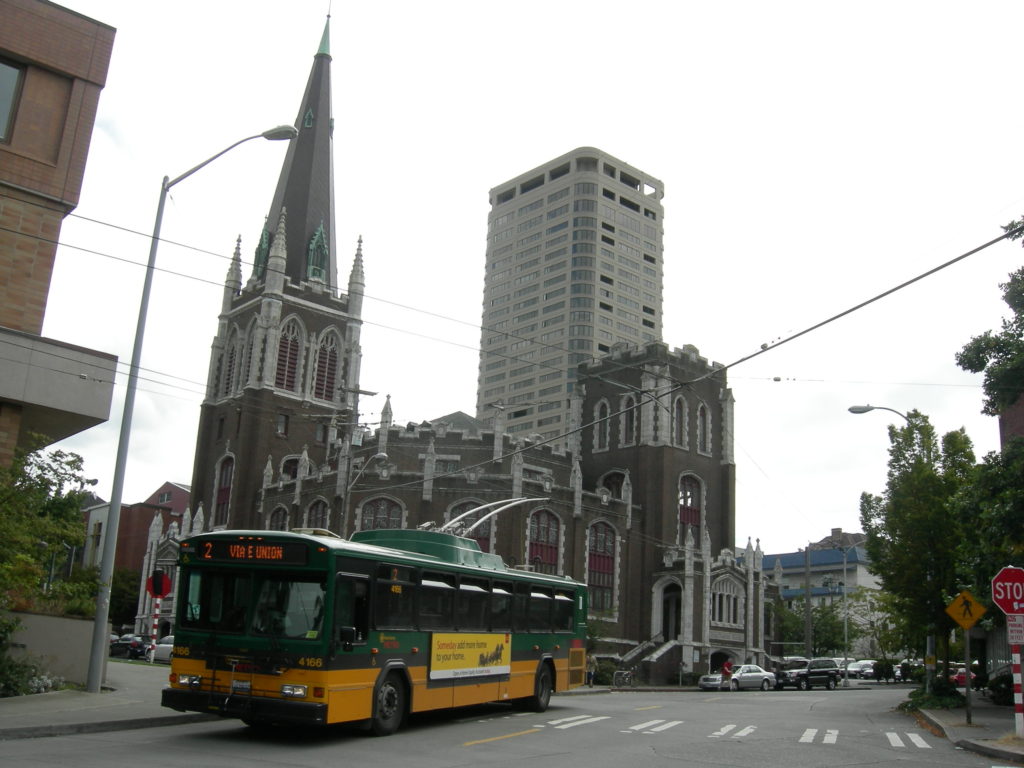Among the many elements of “Cascadian culture” none is more pronounced than its entrepreneurial spirit. Entrepreneurs have played a huge role in creating a vibrant economy here by creating the wealth for local universities, museums, art galleries, symphonies opera halls, hospitals and medical research facilities.
Frederick Weyerhaeuser founded the wood products industry here, introducing the concept of sustainable forestry. Bill Boeing founded a little aircraft company that today plays a lead role in connecting people around the world. John Nordstrom started a store that eventually revolutionized the retail industry.
Entrepreneurialism as an element of Cascadian culture continues to be demonstrated by thousands of people. Leaders are household names: Bill Gates of Microsoft, Jeff Brotman of Costco, Howard Schultz of Starbucks and Jeff Bezos of Amazon, not to mention the hundreds of biotech firms that have improved human health around the world.
It was the example of earlier entrepreneurs that led me to my own entrepreneurial odyssey. After graduating with a BA in economics from the University of Washington and then an MBA from the Stanford University Graduate School of Business, I eventually was drawn north to Alaska. There I served the rapidly expanding needs of people in that remote state following the discovery of the mammoth oil field at Prudhoe Bay. I participated in founding a bank, and raising the capital needed from over three hundred local citizens.
Eventually I returned with my family to Seattle where a partner and I saw a need for a bank exclusively focused on serving local businesses. Again, raising the necessary capital from local citizens, our bank, The Commerce Bank of Washington, opened for business in 1988 and has enjoyed a diverse and steady flow of customers ever since.
The church was always an important part of my life. Eventually, as years went by, I began to experience a gnawing feeling on Sundays as I drove my family home from church. I began to question if God truly wanted me in banking. I began to wonder, if in fact I was truly serious about my faith, perhaps I needed to abandon the world of business and go become a missionary in Africa.
When I took this issue of faith and work to my pastor for guidance, I was dismayed to discover that his lack of understanding of my world of business rendered him incapable of adequately advising me.
Apparently my pastor was not alone. In their book Church on Sunday, Work on Monday theologians and scholars Laura Nash of Harvard and Scotty McLennan of Stanford report their findings that “a disconnect between clergy and business people is largely due to the inadequate understanding of business and how the economy works by clergy.” I concluded that I was going to have to find the answer by myself.
In 1998 I retired to investigate this gnawing ache. I enrolled in Fuller Seminary’s MAT program, taking and auditing courses as the initial step in a four-year research project examining entrepreneurship in the context of Christianity.
The climax of my research came one night as I was totally absorbed in study in the Seattle Pacific University library. I came across a fascinating story about Martin Luther’s little book entitled The Babylonian Captivity of the Church. In that book Luther argues that every Christian, not only the priest, can serve and glorify God in their daily work. The bricklayer, the farmer, the cook, and yes, even a banker like me could find a place in the economy of God. In this story two Dutch priests read Luther’s book and are so moved that they decide to take radical action.
They locked the door of their church.
Not because they wanted to close the church, but out of a desire to make Luther’s point clear, followers of Christ are to live their whole lives for God.
It was this discovery of Luther’s “priesthood of all believers” that was the biggest “ah ha!” moment in my four years of study. I leaned back in my chair and declared “That’s it!” – Luther asserted the positive relationship between vocation and ministry. Being a missionary every day at my business is as much fulfilling the Great Commission as being a missionary in Africa.
During the course of my research I wrote two books reflecting on what I had found: God and Business and later Closing the Sunday – Monday Gap: Opening a Conversation Between Clergy and Business People.
Cascadia is a region of creative and industrious entrepreneurs in software, aerospace, biotechnology, retailing and finance. Any church that wishes to connect with this Cascadian culture must be conversant with its spirit of entrepreneurialism. For too long churches have ignored, and even scorned, Christians like myself who serve in the marketplace. In retrospect on my own life experience with the church, it might not be a bad idea for Cascadian churches to take a page from Luther. Churches should embrace these entrepreneurs, affirming their role as high and holy priests who are called to steward God’s creation with responsibility, care, and grace.


